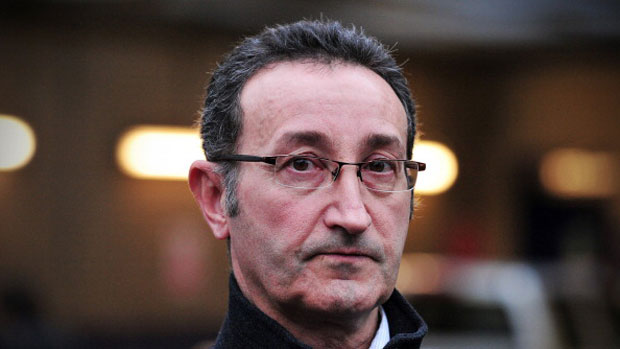Zaid al-Hilli bail lifted in UK but French say he's still a suspect
Surrey police say there's not enough evidence, but prosecutor Maillaud says he's 'not finished' with Zaid

A free daily email with the biggest news stories of the day – and the best features from TheWeek.com
You are now subscribed
Your newsletter sign-up was successful
SURREY police have announced this morning that Zaid al-Hilli, the brother of Saad al-Hilli, who with his wife and mother-in-law was found shot to death in the French Alps in September 2012, has been freed from bail because there is insufficient evidence to charge him with any criminal offence.
As the BBC reports, Zaid al-Hilli was arrested last June on suspicion of conspiracy to commit murder amid claims that he doctored documents in a bid to get his hands on the family home following his and Saad's father's death.
But he has always denied the "ridiculous" accusations that he arranged his brother's killing. The lifting of his bail conditions means he is now free to come and go from Britain.
The Week
Escape your echo chamber. Get the facts behind the news, plus analysis from multiple perspectives.

Sign up for The Week's Free Newsletters
From our morning news briefing to a weekly Good News Newsletter, get the best of The Week delivered directly to your inbox.
From our morning news briefing to a weekly Good News Newsletter, get the best of The Week delivered directly to your inbox.
But before he breathes a huge sigh of relief, he should know that the Surrey police's view is not mirrored by Eric Maillaud, the French prosecutor still in charge of getting to the bottom of this murder mystery.
"Judicial procedures are different from one country to another," Maillaud is quoted as saying today by the local French news site, Le Dauphine. "This decision [to lift bail] is logical under British justice. But it does not signify that we are finished with Zaid al-Hilli, nor that he is innocent."
Maillaud, who right from the start of this lengthy investigation has put the alleged dispute between the brothers are the top of his agenda, said Zaid al-Hilli would remain a suspect under French law and could be called in for questioning again if French investigators deem it necessary.
It was on 5 September 2012 that the bodies of Saad al-Hilli, his wife Iqbal and his mother-in-law Suhaila al-Allaf were found in the family BMW, parked in a wooded lay-by near Lake Annecy. Their daughters Zainab, seven, and Zeena, four, both survived the attack – the younger girl famously hiding beneath the skirts of her mother and grandmother in the back of the car.
A free daily email with the biggest news stories of the day – and the best features from TheWeek.com
Also found dead at the scene was a French cyclist, Sylvain Mollier, who it was assumed was killed by the gunman or gunmen because he had stumbled across the assassination scene.
Zaid al-Hilli is among those who have argued that the French investigators are barking up the wrong tree and that the killings happened the other way round: that it was Mollier who was the gunman's prime target and that the al-Hilli family had to be disposed of because they witnessed his killing.
Zaid has accused the French of a cover-up in this regard. But Maillaud long ago dismissed the notion that Mollier was the target. As early as mid-October 2012, he poo-poohed as "pure invention" a piece by a respected journalist at Le Parisien saying that ballistic reports had suggested the cyclist was shot first and was therefore likely to have been the prime target.
At around the same time, another relative, Dr Ahmad al-Saffar, the uncle of Saad al-Hilli's wife, Iqbal, expressed frustration at Maillaud's insistence on looking for motives in the al-Hilli family background and "dismissing all other lines of investigation".
Al-Saffar was also among those who questioned why Maillaud had said within a week of the bodies being found that solving the crime might take "two, three or ten years". It was "not fair" of the prosecutor to jump to this conclusion so early in the investigation, said al-Saffar.